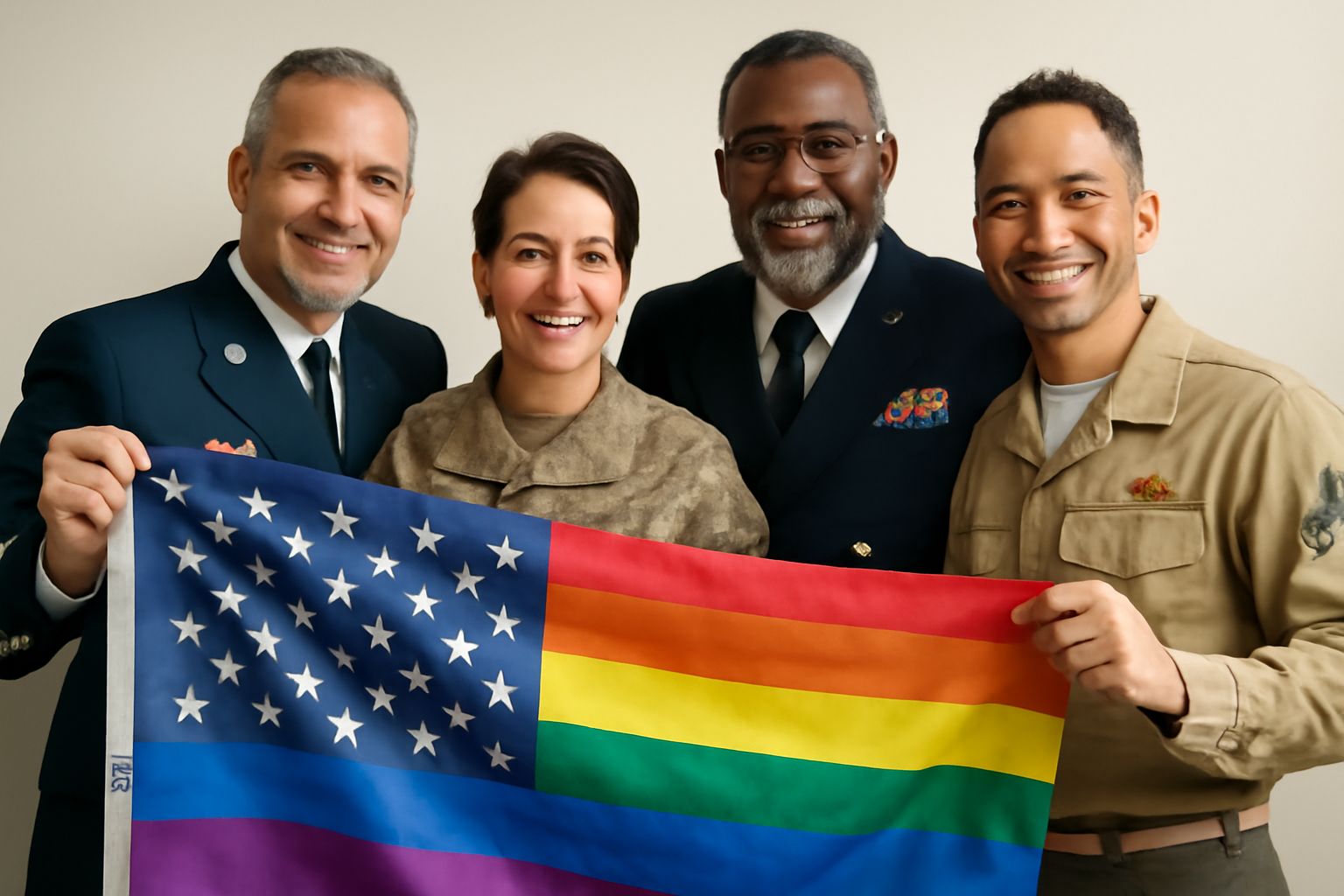
In a groundbreaking development, the United States Department of Defense has come to a significant agreement with over 30,000 LGBTQ+ veterans who were dismissed under the 'Don't Ask, Don't Tell' policy. This landmark settlement offers these veterans the opportunity to amend their military records with greater ease and efficiency.
The controversial policy, instituted by President Bill Clinton in 1994, forced LGBTQ+ individuals serving in the armed forces to conceal their sexual orientation. This led to rampant discrimination, resulting in the discharge of many service members based on their actual or perceived sexuality, often with a less than honorable status that stripped them of vital benefits.
Fast forward to 2023, when a pivotal class action lawsuit, Farrell v. the US Department of Defense, was initiated in the US District Court for the Northern District of California. This lawsuit was filed on behalf of numerous LGBTQ+ veterans who argued that the department failed to grant them an honorable discharge or expunge derogatory language concerning their sexuality from service records, despite the repeal of 'Don't Ask, Don't Tell' in 2011.
Class Action Lawsuit and Settlement
The plaintiffs contended that the nature of their discharges prevented them from accessing full benefits, asserting this as a breach of their constitutional rights. The settlement reached ensures that those discharged under 'Don't Ask, Don't Tell' or similar policies can now bypass an arduous legal process to revise their service records and remove any stigmatizing references to their sexuality.
An honorable discharge signifies that a service member fulfilled their duties with competence and integrity, granting them access to benefits such as home-loan support, medical assistance, and retirement pay. Conversely, those with dishonorable discharges are barred from veteran benefits and may face restrictions on civilian government benefits, including unemployment aid and federal student loans.
Jocelyn Larkin, an attorney who represented the veterans in the class-action suit, noted the reluctance many veterans felt in confronting the bureaucratic hurdles to amend their records before this settlement. "It is so important that the ongoing impact of this discriminatory policy is finally going to be addressed," Larkin remarked. "While the repeal of 'Don't Ask, Don't Tell' was a crucial step, it was insufficient, as the stigma from service records continued to affect veterans."
Sherrill Farrell, a Navy veteran and a plaintiff in the case, shared her journey of enlisting in 1985, coming from a lineage of military service, and the heartbreak of being discharged due to her sexual orientation. "When I was discharged, it felt as though my country was dismissing the value of my service due to who I loved," Farrell expressed. "Today, I reclaim pride in my service by advocating for veterans like myself to ensure that our honor is acknowledged."
Impact on LGBTQ+ Veterans
Lilly Steffanides, another Navy veteran, echoed similar sentiments, reflecting on how joining the military in 1988 was driven by a desire to serve honorably, only to be unjustly discharged. "Correcting these records is not just about administrative changes," Steffanides emphasized, "but about restoring the dignity and respect that LGBTQ+ veterans have always deserved but were denied."
Julianne Sohn, a former marine, described the settlement as a vital acknowledgment of past injustices and a preventative measure against future discrimination. "This settlement stands as a testament to correcting past wrongs and ensuring that no service member is subjected to such prejudice again," Sohn stated.
The agreement is pending approval from a federal judge and is set to be reviewed by Magistrate Judge Joseph Spero in the coming weeks. The settlement is a significant step forward in addressing the estimated 14,000 discharges under 'Don't Ask, Don't Tell', with over 20,000 more affected by similar reasons since 1980.
We invite you to share your thoughts on this historic settlement. Join the discussion and remember to engage respectfully as we reflect on the progress made and the road ahead for equality in the armed forces.
Related Posts
Triumphant Trans Woman Wins Legal Battle and Inspires Others to Stand Up for Their Rights
Breaking new ground: a landmark victory in transgender rights After battling in courtrooms and enduring endless challenges, Diana Portillo, a transgender woman, has secured a monumental victory in her decade-long fight against workplace discrimination. The result? Nearly $1 million awarded in a historic settlement. But this isn't just a win on paper—it represents a powerful precedent in combati [...]
Pride Month in Latin America: Protests and Demands for Equality
**Celebrating Pride and advocating LGBTQ+ rights in Latin America** Pride Month in Latin America was a lively mix where celebration met activism. Communities united, not just throwing a party but making a stand—demanding equality and pushing governments toward better protection and rights recognition. Throughout Latin America, pride events erupted in marches and cultural displays, each with a c [...]
Transgender Erasure Actions Implemented by National Park Service
```html Trump administration's impact on national park service and transgender recognition The Trump administration made notable moves in undermining transgender representation, which included directing agencies like National Park Service not include "T" and "Q" when they refered “LGBTQ” in any official communication. This move seems part a broader plan by this administration aimed at reducin [...]